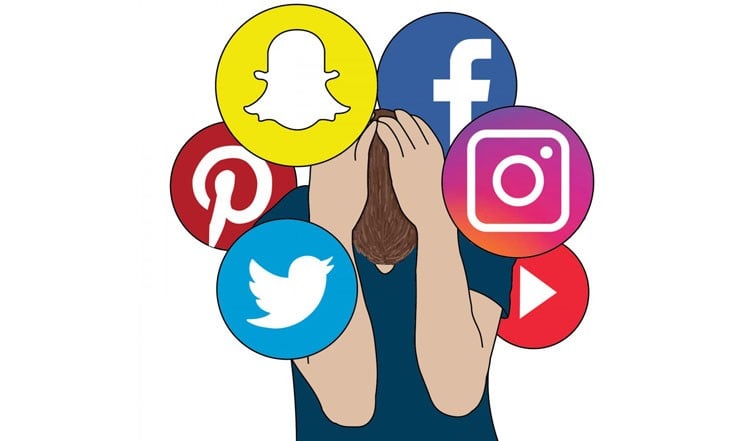
People have found their long lost friends, class fellows, and colleagues through Facebook. That, perhaps, is the sweetest part of the social networking sites. But there’s a flip side to it too

Social media is a platform where people exchange their ideas, discuss activities, share videos and images from anywhere in the world, via internet.
Over the past two decades, social media has played a vital role in connecting people across the globe. An inexpensive and widely accessible tool, social media helps anyone to publish/post/upload as well as download/access information etc. The world is now, to use a cliché, a global village.
There are many social networks like Facebook, Twitter, Snapchat, and Instagram. You just need to sign in to these sites to explore and connect with people all over the world. People have found their long lost friends, class fellows, and colleagues through Facebook. That, perhaps, is the sweetest part of such sites.
Today, every second person, old and young alike, is using a social networking site. According to an estimate, the average time a person spends daily on social media is 8 to 12 hours. Smartphones have made social media most readily accessible to us: we are connected on the go.
The young form an important chunk of the users of social media. A BBC News survey says that 67 percent users of Facebook are youth and students. It is not uncommon to find people, especially youngsters, at a family gathering and not talking to anyone, just staring into their phone screens.
The young are also the most vulnerable. No doubt, the students get to benefit from the myriad groups that are meant for the young, on Facebook and Whatsapp. Then there is online career counselling which is becoming quite a fad. But, as with most good things in the world, social media has a down side. Firstly, it is addictive. And, when you look at teenagers, you find that they (like to) spend more time on social media than on books or with their families. Secondly, it can divert your attention and focus from more important tasks at hand. And, last but not the least, the young, highly impressionable minds are exposed to things that may be subversive or perverted in nature, away from the watch of their parents/adult guardians.
While we can make friends around the world on social media, we can’t know who is a ‘real’ friend. This can lead to disillusionment for the young.
Thanks to social media, whatever we do, buy, or eat, is determined by what is fashionable as per the countless sites we have at our disposal. We are obliged to show off the things we do or possess, the places we visit -- or, ‘check in’ -- hoping to stay relevant, if not popular among our (so-called) friends’ circles.
It is common knowledge that post-millennials stay up till late at night, and certainly there is a good number of all-nighters. These are people who remain glued to the screen for far more hours than it’s recommended (by health experts). By the way, the result is often insomnia or poor quality of sleep, both of which can lead to anxiety and depression.